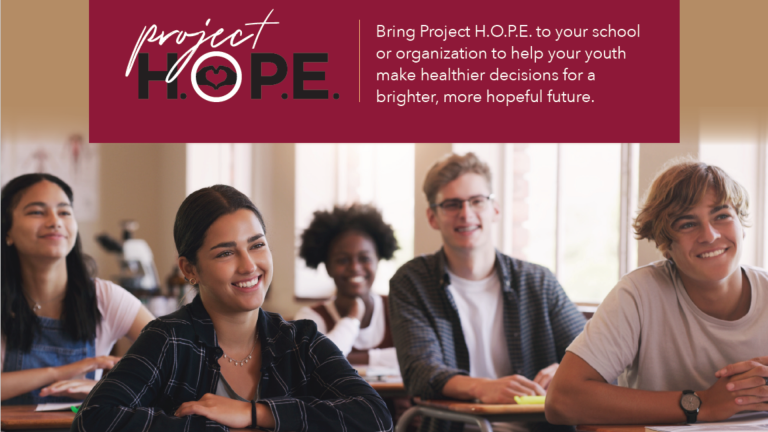|
Getting your Trinity Audio player ready...
|
Sadly – and strangely – toxic relationships are being promoted in music and popular culture as the ultimate expression of romance. “But there’s nothing romantic about being in a toxic relationship,” says Sabrina Jules, Program Manager Youth Services for Be Strong International, which is helping young people build healthy relationships through Project H.O.P.E., an interactive workshop series offered at 25 middle and high schools in Miami-Dade and Broward counties.
No matter what the songs say and the movies show, love doesn’t hurt. But when you’re young and in your first romantic relationship, it can be easy to think your partner is proving their love for you with hurtful actions. Jealousy, controlling behavior may seem passionate and romantic, but it’s just emotional manipulation that often leads to physical abuse.
If you’re experiencing this harmful kind of relationship, you’re not alone. According to the U.S. Department of Justice’s Office of Juvenile Justice and Delinquency Prevention, up to 19% of teens experience sexual or physical dating violence, about half face stalking or harassment, and as many as 65% report being psychologically abused.
We’re spotlighting Project H.O.P.E. during Teen Dating Violence Awareness Month, observed every February by the National Domestic Violence Hotline’s Love Is Respect project. The event raises awareness and offers support, information and advocacy for young people ages 13-26 who have questions or concerns about their romantic relationships. This year’s theme is “Respect That.”
Respecting others must begin with respecting yourself, and that means learning to communicate in a healthy way with those who hurt you and call it love. That’s what teens learn in Project H.O.P.E.
“To know what a healthy relationship is, you have to first know yourself – your values, your beliefs and how to be your best person,” says Jules. Project H.O.P.E. takes a holistic approach that looks at the whole person, not just the part that dating represents.

The workshops teach participants how to recognize harmful relationships and the feelings they create and then how to speak up and express their discomfort or even fear. Role-playing is one of the workshops’ foundations.
“We might show an example of what is not a healthy way of communicating with somebody, with a child shouting and calling names,” Jules explains. “And then we’ll ask you to show us a healthy way to communicate.”
Teens learn to express themselves rationally, with words like “I feel” and “I think.” Setting emotional and physical boundaries is another foundation of the workshops.
“We all come from different childhoods, different homes and different traumas, so we all have different boundaries,” Jules says. “For example, I don’t like when someone is shouting or yelling at me, so for me, everything is about tone of voice.” Someone else might set boundaries around physical contact.
When someone crosses the boundary, it can be a red flag leading up to violence by the person who claims to love you. The first step is to communicate the feelings of discomfort or anxiety:
“I don’t like when you’re yelling, screaming, or shouting at me.”
“Things are going a little fast, and I’d rather not be physically intimate with you right now.”
It’s not easy for many teens to communicate these feelings, so Project H.O.P.E. teaches workshop participants to begin by simply trusting their instincts.
“Even if you’re not able to use your words, listen to your body, listen to your breathing, listen to how your body is,” Jules says.
And don’t keep the situation to yourself, she adds. She urges young people to talk to their parents when faced with these situations. If that’s not possible or you don’t feel comfortable, talk to another trusted adult.
“Just use your voice and be brave,” she advises. “But know when to leave.”
More information
Teen Dating Violence Awareness Month: www.loveisrespect.org/get-involved/tdvam
For help in a crisis: www.thehotline.org
Project H.O.P.E.: www.bestrongintl.org/project-hope

ABOUT US:
For more Miami community news, look no further than Miami Community Newspapers. This Miami online group of newspapers covers a variety of topics about the local community and beyond. Miami’s Community Newspapers offers daily news, online resources, podcasts and other multimedia content to keep readers informed. With topics ranging from local news to community events, Miami’s Community Newspapers is the ideal source for staying up to date with the latest news and happenings in the area.
This family-owned media company publishes more than a dozen neighborhood publications, magazines, special sections on their websites, newsletters, as well as distributing them in print throughout Miami Dade County from Aventura, Sunny Isles Beach, Miami Beach, Coral Gables, Brickell, Coconut Grove, Pinecrest, South Miami, Kendall, Palmetto Bay, Cutler Bay and Homestead. Each online publication and print editions provide comprehensive coverage of local news, events, business updates, lifestyle features, and local initiatives within its respective community.
Additionally, the newspaper has exclusive Miami community podcasts, providing listeners with an in-depth look into Miami’s culture. Whether you’re looking for local Miami news, or podcasts, Miami’s Community Newspapers has you covered. For more information, be sure to check out: https://communitynewspapers.com.
If you have any questions, feel free to email Michael@communitynewspapers.com or Grant@communitynewspapers.com
#thatscommunitynews #communitynewspapers #miamidade #miamidadecounty #thatscommunity #miamicommunitynews #coralgables #palmettobay #southmiami #doral #aventura #pinecrest #kendall #broward #biscaynebay






